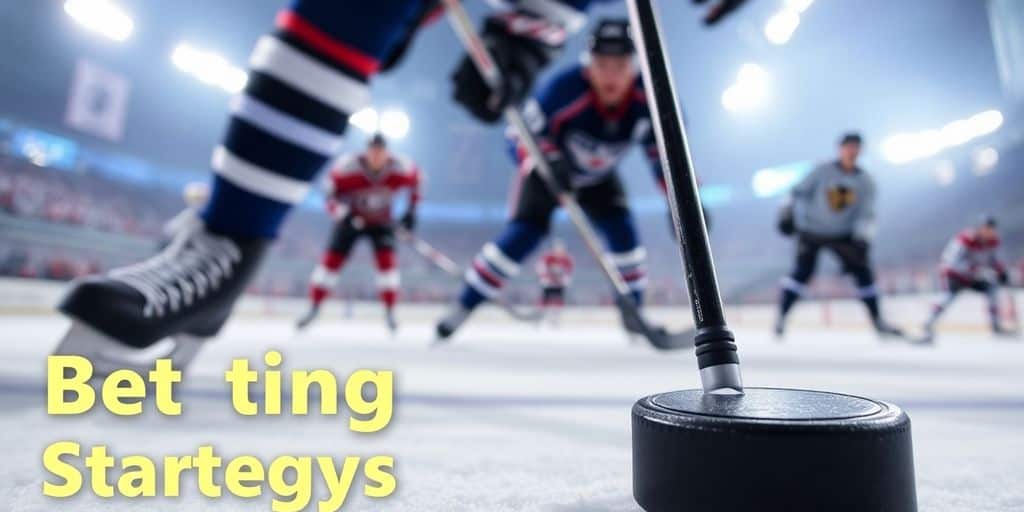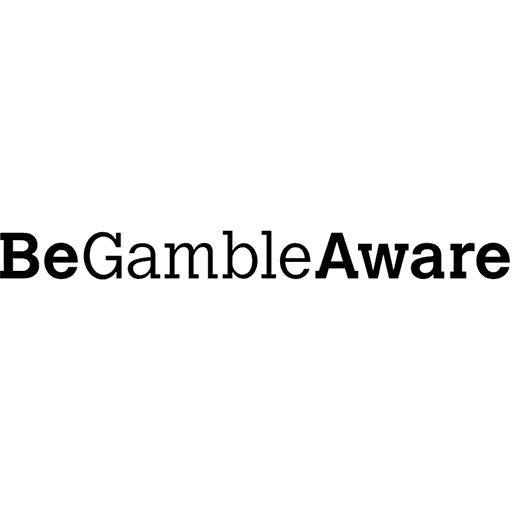Hockey betting can be a thrilling way to engage with the game while potentially making some cash. But like any form of betting, it’s essential to have a solid strategy in place. Whether you’re a newbie or have some experience, understanding the ins and outs of hockey betting can really boost your chances of winning. In this article, we’ll break down key strategies and tips to help you maximize your winnings in 2025.
Key Takeaways
- Familiarize yourself with different types of hockey bets, including moneyline and puck line bets.
- Analyze team performance and player injuries to make informed betting decisions.
- Consider advanced strategies like betting against public opinion for better odds.
- Practice good bankroll management by setting limits and tracking your bets.
- Stay updated on NHL trends and news to adjust your betting strategy accordingly.
Understanding The Basics Of Hockey Betting
It’s important to get a handle on the basics before you start thinking about advanced hockey betting strategies. A solid base will help you make smarter choices and, hopefully, see better returns. Let’s break down what you need to know to get started.
Types Of Bets Available
There are several ways to bet on hockey, each with its own risk and reward. Understanding these different types is key to crafting a good NHL betting strategy. Here’s a quick rundown:
- Moneyline: This is the simplest type of bet. You’re just picking which team will win the game outright. Odds will vary depending on how favored a team is.
- Puck Line: This is hockey’s version of a point spread. The favorite needs to win by a certain number of goals (usually 1.5), while the underdog can lose by less than that or win outright. It adds a layer of complexity beyond just picking the winner.
- Over/Under: Here, you’re betting on the total number of goals scored in the game by both teams. The sportsbook sets a number, and you bet whether the actual total will be over or under that number.
- Prop Bets: These are bets on specific events within the game, like which player will score first or how many saves a goalie will make. They can add some fun and variety to your betting.
- Futures: These are long-term bets, like which team will win the Stanley Cup. They require patience, but the payouts can be significant.
How Odds Work
Understanding how odds work is super important. They tell you how likely something is to happen and how much you stand to win. Odds can be presented in a few different formats, but the most common are:
- American Odds: These are shown with a plus (+) or minus (-) sign. A minus sign indicates the favorite, and the number shows how much you need to bet to win $100. A plus sign indicates the underdog, and the number shows how much you’ll win if you bet $100.
- Decimal Odds: These are a single number that represents the total payout for a $1 bet, including your original stake. For example, odds of 2.50 mean you’ll get $2.50 back for every $1 you bet.
- Fractional Odds: These are common in the UK and are shown as a fraction, like 5/1. This means you’ll win $5 for every $1 you bet, plus you get your original stake back.
It’s worth taking the time to really understand how odds work. It’s not just about knowing which team is favored; it’s about finding value in the odds and making informed decisions.
Key Terminology
Like any specialized field, hockey betting has its own lingo. Here are a few key terms you should know:
- Bankroll: The total amount of money you have set aside specifically for betting.
- ATS (Against The Spread): Refers to a team’s record against the puck line.
- ** juice/vig:** The commission the sportsbook charges on a bet.
- ** unit:** A standard bet size, usually a percentage of your bankroll.
- Sharp: A knowledgeable and successful bettor.
Knowing these terms will help you understand discussions and analysis about hockey betting, and it will make you feel more confident when placing your bets. Don’t be afraid to ask questions and look things up as you learn. The more you know, the better your chances of success.
Key Factors To Consider In Hockey Betting

Team Performance Analysis
Alright, so you wanna get serious about hockey betting? You can’t just pick teams based on a hunch. You gotta look at the numbers. Recent team performance is super important. Check out their last few games. Are they scoring a lot? Are they letting in a ton of goals? Are they winning against good teams, or just padding their stats against weaker opponents? A team on a hot streak is usually a safer bet than one that’s been struggling, but don’t let that be the only thing you look at.
- Look at their wins and losses.
- Check their offensive and defensive stats.
- Consider the quality of their opponents.
Don’t just look at the overall record. Dig into the details. A team might have a good record, but if they’ve been winning a lot of close games, they might be due for a loss. Or a team with a bad record might be playing better than their record indicates.
Impact Of Player Injuries
Injuries can totally change a team’s chances. If a star player is out, especially a top scorer or the starting goalie, it can really hurt the team. Keep an eye on the injury reports. Sometimes, a lesser-known player gets a chance to step up, and that can create some value betting opportunities. But usually, injuries are bad news for a team’s chances. It’s not just about the player who’s out, it’s about how the team adjusts to playing without them.
- Check the injury reports before placing your bet.
- Consider the importance of the injured player.
- Think about how the team will adjust to the injury.
Goaltending Matchups
Goalies can win or lose games all by themselves. It’s super important to look at the goalie matchup before you bet. Check their save percentage and goals against average. How have they done against this particular team in the past? Are they on a hot streak, or have they been struggling lately? A good goalie can steal a game, even if the rest of the team isn’t playing great. A bad goalie can cost you money, even if the team is otherwise solid. Here’s a quick look at some key stats:
| Goalie | Save % | GAA |
|---|---|---|
| Goalie A | 0.920 | 2.50 |
| Goalie B | 0.905 | 3.00 |
| League Average | 0.910 | 2.75 |
- Check the goalies’ save percentage.
- Look at their goals against average.
- Consider their recent performance.
Advanced Strategies For Successful Hockey Betting
Betting Against The Public
Betting against the public, or "fading the public," can be a surprisingly effective strategy. The core idea is that the majority of casual bettors often overreact to recent results or favor popular teams, leading to inflated odds on the other side. Bookmakers adjust lines to balance their books, which can create value on the less popular side. It’s not about blindly betting against the majority, but identifying situations where public perception doesn’t align with true probabilities. For example, if a popular team loses a star player to injury but the public still heavily backs them, the opposing team might offer NHL betting value.
Value Betting Techniques
Value betting is all about finding situations where the odds offered by a bookmaker are higher than your assessment of the actual probability of an event occurring. It requires a deep understanding of hockey, statistical analysis, and the ability to identify discrepancies between your own calculations and the bookmaker’s odds. It’s not about predicting winners every time, but consistently finding bets where the potential payout outweighs the risk. Here’s how to approach it:
- Develop your own model for predicting game outcomes.
- Compare your model’s probabilities to the bookmaker’s odds.
- Focus on bets where your model gives a significantly higher probability of success than the implied probability from the odds.
Value betting demands patience and discipline. You might need to pass on many seemingly good opportunities before finding a truly valuable bet. However, the long-term profitability of this strategy makes it worth the effort.
Live Betting Opportunities
Live betting, or in-play betting, adds a dynamic layer to hockey wagering. It allows you to place bets as the game unfolds, reacting to real-time events and momentum shifts. This can be advantageous because you can assess team performance, player matchups, and game flow before committing your money. A successful live betting strategy involves:
- Watching the game closely and identifying key turning points.
- Understanding how coaching decisions and player adjustments impact the game.
- Capitalizing on temporary advantages or disadvantages that arise during the game. For example, a team taking multiple penalties in quick succession might present a live betting opportunity on the opposing team’s power play.
Here’s an example of how odds might shift during a game:
| Time | Event | Team A Odds | Team B Odds |
|---|---|---|---|
| Start | Pre-game odds | -150 | +130 |
| 10:00 | Team A scores first goal | -200 | +170 |
| 30:00 | Team B ties the game | -120 | +100 |
| 50:00 | Team A takes a penalty | +100 | -120 |
Effective Bankroll Management For Hockey Bettors
Betting on hockey can be a blast, but it’s super important to handle your money the right way. Think of it like this: you wouldn’t start a business without a budget, right? Same goes for betting. Good bankroll management is what separates the casual fans from those who are serious about making some money.
Setting A Budget
First things first, figure out how much you can actually afford to lose. Seriously. This isn’t about how much you want to bet; it’s about what you can comfortably part with if things go south. This amount is your bankroll, and you should never, ever go over it. Don’t dip into your rent money or grocery funds. Once you’ve got that number, stick to it like glue. It’s a good idea to separate your betting funds from your everyday spending money. Open a separate bank account or use a different payment method just for your hockey bets. This makes it easier to track your wins and losses and prevents you from accidentally overspending.
Tracking Your Bets
Keep a record of every single bet you make. I mean every bet. Write down the date, the team you bet on, the type of bet, the odds, how much you wagered, and whether you won or lost. There are apps and spreadsheets that can help with this, or you can just use a notebook. The point is to have a clear picture of where your money is going. This helps you identify what’s working and what’s not. Are you consistently losing money on a certain type of bet? Maybe it’s time to rethink that strategy. Are you killing it when you bet on home underdogs? Do more of that!
Adjusting Your Strategy
Your betting strategy shouldn’t be set in stone. It should be a living, breathing thing that evolves as you learn more and as the hockey landscape changes. If you’re consistently losing money, it’s time to make some changes. Maybe you need to do more research, maybe you need to focus on different types of bets, or maybe you just need to take a break. Don’t be afraid to experiment and try new things. But always, always, always track your results so you can see what’s actually working. Remember, the goal is to make money over the long haul, not to win every single bet.
It’s easy to get caught up in the excitement of hockey betting, but it’s important to stay disciplined and stick to your plan. Don’t let emotions cloud your judgment, and don’t chase losses. If you’re having a bad day, take a break and come back to it later. The most important thing is to protect your bankroll and stay in the game for the long run.
Utilizing Data And Analytics In Hockey Betting

Statistical Analysis Tools
Okay, so you want to get serious about hockey betting? Then you gotta get into the numbers. It’s not just about who feels like they’ll win. We’re talking cold, hard stats. There are a bunch of tools out there to help you crunch these numbers. Some are free, some cost a bit, but they all give you an edge. Think of it like this: you’re building a case, and the stats are your evidence.
- Websites that track team stats (shots on goal, power play percentage, penalty kill rate).
- Tools that show player stats (goals, assists, plus/minus).
- Software that lets you create your own models.
Using these tools isn’t about blindly following the numbers. It’s about understanding the story they tell. Are the NHL statistics and analysis websites showing a team is consistently outshot but still winning? Maybe they have a hot goalie, or maybe they’re due for a regression.
Understanding Advanced Metrics
Beyond the basic stats, there’s a whole world of advanced metrics that can give you a deeper understanding of a team’s performance. These metrics try to control for things like luck and quality of competition, giving you a more accurate picture of how good a team really is.
- Corsi and Fenwick: These measure shot attempts, giving you an idea of puck possession.
- PDO: This combines shooting percentage and save percentage, and can indicate whether a team is overperforming or underperforming.
- Expected Goals (xG): This estimates the number of goals a team should have scored based on the quality of their scoring chances.
| Metric | What It Measures | Why It Matters |
|---|---|---|
| Corsi | Shot attempts for and against | Indicates puck possession and offensive pressure |
| Fenwick | Unblocked shot attempts for and against | Similar to Corsi, but excludes blocked shots |
| PDO | Shooting % + Save % | Can indicate regression or progression |
| xG | Expected goals based on shot quality | Provides a more accurate picture of offensive efficiency |
Incorporating Historical Data
Don’t just look at recent games. Dig into the past! Historical data can reveal trends and patterns that can help you make better betting decisions. How does a team perform against a particular opponent? How do they do on the road versus at home? What’s their record after a back-to-back? All this stuff matters. You can use historical data to refine your NHL betting strategy and identify potential value bets. Look at things like:
- Head-to-head records between teams.
- Performance trends over the past few seasons.
- How teams perform in different situations (e.g., playoffs, regular season).
Engaging With The Hockey Betting Community
It’s easy to think you have all the answers when it comes to hockey betting, but trust me, you don’t. Getting involved with other bettors can seriously up your game. It’s like having a study group, but for making money on hockey.
Online Forums And Resources
Online forums are goldmines. You’ll find everything from people sharing their latest NHL betting tips to in-depth discussions about team strategies. Reddit has some pretty active sports betting communities, and there are also a bunch of specialized hockey betting sites. Just be careful about who you trust – not everyone online is a genius, despite what they might claim.
- Read different opinions.
- Share your own insights.
- Ask questions.
Networking With Other Bettors
Networking isn’t just for business; it’s for betting too. Talk to people at your local sports bar, join a betting pool, or even just chat with other fans online. You never know where you’ll find someone with a different perspective or a piece of information you didn’t have before. Plus, it’s just more fun to sweat out a game with other people who are just as invested as you are.
Learning From Experienced Bettors
Find someone who’s been doing this for a while and is actually successful. Ask them about their strategies, how they manage their bankroll, and what mistakes they’ve learned from. Most experienced bettors are happy to share their knowledge, especially if you’re genuinely interested in learning. Don’t expect them to hand you the keys to the kingdom, but they can definitely point you in the right direction. You can learn a lot about well-thought-out strategy from them.
It’s important to remember that no one has a crystal ball. Even the most experienced bettors have losing streaks. The key is to learn from those losses and keep improving your approach.
Staying Informed About NHL Trends
Following Team News
Staying on top of the latest happenings with each team is super important. It’s not just about who won or lost; it’s about why. Was there a key injury? A sudden trade? A change in coaching strategy? All of these things can drastically affect a team’s performance and, therefore, your bets. I usually check multiple sources to get a well-rounded view. For example, if you’re looking at Stanley Cup odds, you’ll want to know if a team’s star player is injured before placing your bet.
Monitoring Betting Lines
Betting lines are like a constant conversation between the sportsbooks and the public. Watching how these lines move can give you clues about where the smart money is going. Did a line shift dramatically after an injury announcement? That’s a signal. Are the live betting odds changing rapidly during a game? That tells you something about the momentum. It’s not just about blindly following the lines, but understanding why they’re moving.
Analyzing Recent Performances
Recent performance is more than just wins and losses. You need to dig into the stats. How is the team performing at home versus away? What’s their goal differential in the last five games? Are they winning the special teams battle? Look at the team performance over the last few games. These details can reveal hidden strengths and weaknesses that aren’t immediately obvious. Don’t just look at the surface; go deeper.
It’s easy to get caught up in the hype surrounding a team, especially if they’re on a winning streak. But remember, every team goes through ups and downs. The key is to stay objective and focus on the data, not the emotions.
Here’s a simple table to illustrate how I might track a team’s recent performance:
| Date | Opponent | Result | Goals For | Goals Against | Special Teams % |
|---|---|---|---|---|---|
| 2025-04-01 | Bruins | W | 4 | 2 | 66.7% |
| 2025-04-03 | Leafs | L | 1 | 3 | 25.0% |
| 2025-04-05 | Canadiens | W | 5 | 1 | 50.0% |
| 2025-04-08 | Lightning | L | 2 | 4 | 33.3% |
| 2025-04-10 | Panthers | W | 3 | 2 | 75.0% |
Wrapping It Up: Your Path to NHL Betting Success
So, there you have it. Betting on hockey can be a wild ride, but with the right strategies, you can really boost your chances of winning. Remember to keep an eye on team performance, player injuries, and those sneaky betting trends. It’s all about making smart choices and sticking to your plan. Don’t forget to manage your bankroll wisely, too. If you take the time to learn and adapt, you might just find yourself enjoying the game even more while raking in some profits. Good luck out there, and may your bets be ever in your favor!
Frequently Asked Questions
What are the basic types of bets in hockey betting?
In hockey betting, the main types of bets include Moneyline bets, where you pick the team to win, and Puck Line bets, which are similar to point spreads in other sports.
How do I understand odds in hockey betting?
Odds show how likely a team is to win. Lower odds mean the team is favored, while higher odds suggest they are the underdog.
What factors should I consider when betting on hockey?
Key factors include team performance, player injuries, and the goaltender’s form, as these can greatly affect the outcome of a game.
What is value betting in hockey?
Value betting means finding bets where the odds offered are better than the actual chances of that outcome happening, giving you an advantage.
How can I manage my betting money effectively?
Set a budget for how much you can afford to bet, keep track of your wins and losses, and adjust your strategy as needed.
Where can I learn more about hockey betting strategies?
You can join online forums, follow experienced bettors, and read articles to gain insights and learn new strategies for hockey betting.











